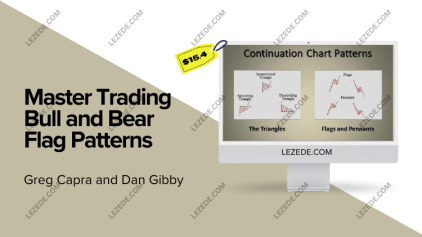Speculating with Futures and Traditional Commodities by Liverpool Group Free Download – Includes Verified Content:
Speculating with Futures and Traditional Commodities by Liverpool Group: A Comprehensive Review
In today’s dynamic financial environment, the Liverpool Group introduces a valuable program titled “Speculating with Futures and Traditional Commodities.” This educational offering is crafted to equip emerging traders with vital insights and capabilities to navigate the intricate landscape of futures and commodity markets. Carefully structured, the program dives into foundational principles, key strategies, and how futures play an integral part in portfolio management. As investors seek innovative financial opportunities, gaining a strong grip on commodities and futures trading becomes essential—and this course serves as a key resource.
Grasping the Fundamentals of Futures Trading
The path to futures trading begins with essential knowledge. This program by the Liverpool Group lays out a clear explanation of futures contracts and their purpose in broader financial systems. These agreements involve buying or selling a specific asset at a future date for a fixed price. Besides offering speculative potential, they are instrumental in protecting against price volatility—a necessity for both producers and buyers.
Futures span across several major commodity classes:
-
Energy: Includes vital resources like oil and gas that fuel economies worldwide.
-
Metals: Covers both precious (gold, silver) and industrial (copper) metals, providing insights into economic health.
-
Agricultural Products: Features staples like wheat, soybeans, and corn, central to food markets.
Each sector contributes to economic shifts and affects industries from manufacturing to logistics. Gaining clarity on these sectors allows traders to make smarter, more informed trades. The course also compares futures with conventional investment tools like stocks, pointing out unique benefits and inherent risks.
The Role of Speculators in Commodity Trading
An essential element of the Liverpool Group’s program is examining the function of speculators in commodity markets. Speculators, though often debated, are crucial players. They inject liquidity into the market, aiding smooth trade execution and facilitating accurate price discovery. This ensures active participation from both buyers and sellers, which can stabilize pricing.
Benefits of Speculators:
-
Boost overall liquidity
-
Aid in identifying fair market value
-
Drive greater market participation
Yet, critics argue that speculative behavior may worsen price surges, impacting consumers. The course presents a balanced view, encouraging learners to assess both positive and negative outcomes of speculative activity. Knowing how and when to speculate can greatly influence trading outcomes.
Tools and Techniques for Trading Success
Rather than focusing solely on theory, the program equips traders with actionable tools. Core segments include technical and fundamental analysis, risk control strategies, and trading psychology.
Comparison of Analytical Methods:
-
Technical Analysis: Involves examining charts and patterns to anticipate market movements, such as breakouts and trend reversals.
-
Fundamental Analysis: Focuses on macroeconomic trends, supply/demand shifts, and global events affecting prices.
Combining both analyses empowers traders to create well-rounded strategies, moving beyond guesswork and into evidence-based decision-making.
Risk Control
Risk management is emphasized throughout the program. Techniques taught include setting strategic stop-loss points, portfolio diversification, and careful leverage usage—each aimed at limiting losses and maximizing gains in optimal conditions.
Interplay Between Futures and the Spot Market
The course also explores the relationship between futures markets and their underlying cash markets. Understanding this connection is vital for comprehensive trading strategies.
Futures derive value from underlying commodity prices, while the cash market involves direct physical transactions. Changes in spot pricing often affect futures values, offering opportunities for quick, strategic trades.
The Psychology of Trading and Goal Setting
Emotional discipline is a recurring theme. Many traders falter due to fear, overconfidence, or impatience. The program addresses these issues by introducing mindset techniques for consistency and self-control in volatile environments.
Setting achievable goals and understanding one’s risk threshold are also emphasized. The course promotes structured trading plans that reflect realistic expectations, helping traders avoid common pitfalls and stay aligned with long-term success.
Summary: Educating and Empowering Modern Traders
In summary, the Speculating with Futures and Traditional Commodities program by the Liverpool Group stands out as an essential training resource for those venturing into commodity markets. From understanding economic forces to mastering tools for analysis and risk, the course builds a solid trading foundation.
This comprehensive learning experience not only provides technical knowledge but also mental preparedness. It underscores that successful trading demands more than speculation—it requires a deep understanding of market behavior, informed strategy, and disciplined execution. With structured guidance from the Liverpool Group, traders are equipped to approach the futures and commodities space with clarity and confidence.











